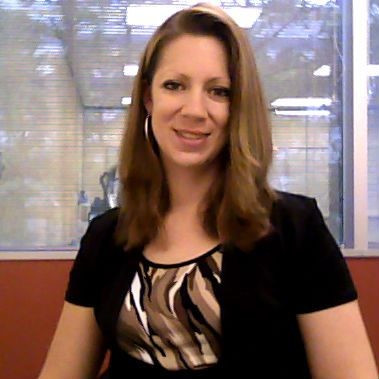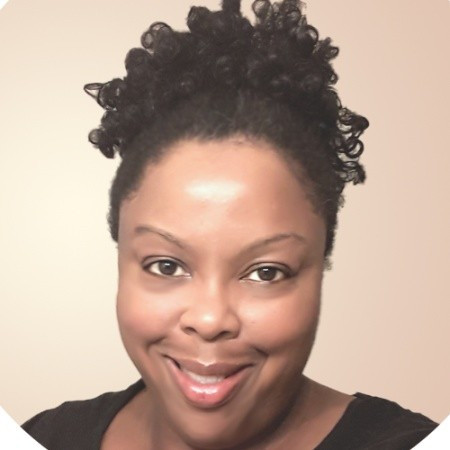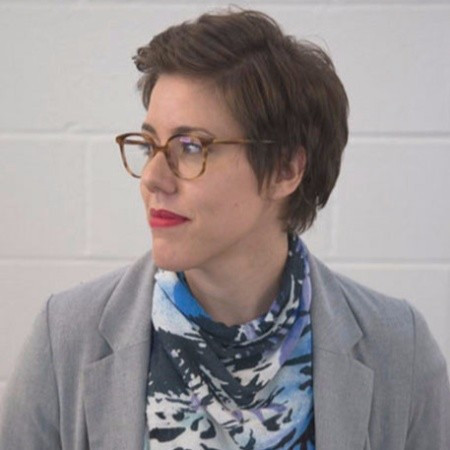Being a Woman in Tech
What is it like to be a woman in the field of technology? We sat down with four women in different areas of the field and at different stages of their career to get their perspectives. We discussed what interests them about their current field, some challenges they have faced, and what they would like to see changed.
Stacy Wyatt, the QA Manager at cPanel.

DigitalCrafts: Hi Stacy! Can you tell us about yourself?
Stacy: I never dreamed of working in technology. I always wanted to be a teacher, and I did all of my education to be a teacher. I taught for 10 years at a local community college here in Houston and loved every minute of it. The idea of technical writing had always appealed to me, a good way to combine my skills and knowledge as a writer. I started working at cPanel as a technical writer and eventually moved over to QA. Apparently, they think I did such a good job that I'm running the department right now. My official title is QA Manager.
DC: What is your typical day like? Does that even exist for you?
Stacy: No, it really doesn't. I get here in the mornings and I have 26 people that report directly to me. Every day I have one or two one-on-one meetings. I also meet regularly with other managers. We get together and talk about how people are doing on their teams. Then I spend about half my day looking at the product of cPanel to see if there is any particular area that we need to fix. So not typical but typical.
DC: How does it feel to be a woman in a male-dominated field?
Stacy: I am a female manager and the documentation manager is female and our departments have the closest balance of female to male ratio. At cPanel we have about 20% women, but my department is about 35% women. The executive assistant manager and the community manager are female. All the other managers, all the executives, the CEO, and the vice presidents are all male.
Women think very differently and I don't like the idea of communicating like a man, but when I'm in these meeting I have to lay out my point in a different way that I normally would with a bunch of females. So it's a matter of know your audience and knowing how they're going to react to information. I think you're more hyper-aware if you're a female in a male-dominated space.
I was in a meeting and a guy cut me off and I kept talking, and another guy cut me off and I kept talking. And privately, I took them both aside and I told them, "You interrupted me during that meeting. That was uncalled for. That was unprofessional and I don't appreciate it." And they apologized.
DC: Do you have any other techniques for those types of situations?
Stacy: I prefer to listen, you can learn a lot more. There have been times when I've tried to say something in a meeting and people will cut me off and ok, they have a valid point and they want to be heard. So I will stop speaking and let them speak. As soon as there is a pause I will jump in and keep my focus on them. You can't back down and you can't be meek. Keeping eye contact while they're talking established that I'm not meek, I will make my point. Go ahead and finish your point and I will respect you, but then you will respect me as well.
DC: Do you have any other advice for women entering male-dominated fields?
Stacy: Make sure your salary is fair. As soon as you know females are making less, that's a big deal. After that, I hate to sound cliche but be true to who you are. Don't think you have to act and talk and think like a male in order to keep up with the males. Because you need to be respected as a female. Females act and think and talk differently. And if we are going to get the respect we deserve, we have to do so on our level.
DC: Is there one thing you would like to see changed?
Stacy: I would like to see more females get hired. There's this approach of letting people get hired based on their merit. Studies have proven repeatedly that this is still biased against women. Sometimes it's necessary to get a female foot in the door to allow it to open up for everyone else. I don't want to get anything in this life based on anything other than merit and capability and strength. But sometimes you have to realize that those things are still biased.
DC: Is there anything else you would like to say that we didn't cover?
Stacy: Thank you for taking the time to put focus on this issue. It's something that we absolutely have to talk about. We have to put time and effort into making sure that it is known and considered and that we are supporting each other.
Veronica Lino, an instructor at DigitalCrafts in Houston, Texas.

DigitalCrafts: Hey Veronica! Can you introduce yourself?
Veronica: My background is in mechanical engineering. When I got out of school, I worked for NASA for 12 years. I've worked for a lot of the big contractors, United States Alliance, Boeing, Lockheed and it was all in space. The last one I worked for was Orion, but it got defunded and a lot of people got laid off. That's when I started getting into web design, working for consulting companies and small startups.
DC: How did you become interested in engineering?
Veronica: I was always really good at math and science. Most of the time teachers would push girls into the arts or history or English, but my teachers would push me into math and science. I went to a small high school and the teachers could really concentrate on you, and I think that made the difference.
DC: How does it feel to be a woman in a male-dominated field?
Veronica: I've always been around all males, even in school my classes were male-dominated. I felt more intimidated in college. But for the most part, since I was 14 years old I've been in situations where it's mostly guys. So now it doesn't bother me even at NASA or any of my jobs. If I'm put to the test, I will compete. So I don't have any problems with men. After I can show them I'm just as strong in my skills I normally have no problems.
DC: Have you run into problems professionally in the workplace?
Veronica: No, not really as far as respect between men and women. I've had more problems with women. I don't know if they're trying to prove themselves in a male-dominated field but they're harder on you most of the time that men. There's more competition with women, I find.
DC: Can you give me an example?
Veronica: When I first got out of school I volunteered for the NASA simulation team. There was a woman who was in charge of software simulations. She knew her stuff but she was not pleasant. She would make remarks like, "I'm not impressed, where did you go to school?" So I just kind of dealt with it and I learned a lot. I don't know if it was the competition, that I have to prove myself because I'm a woman so I have to do something more, but I felt it was harder working with women.
DC: Is there something you would like to see changed in the industry?
Veronica: I would like to see more women. And women, even in my class, are really good. And they don't speak up, they're very quiet. I'm not sure if it's because there are only four women in my class of 20 people. I feel like they could be leaders in our class if they just speak out more. And I think a lot of women get left behind because they don't. I went through the same thing in college, early on.
DC: So when you were in college, how did you find your confidence?
Veronica: I think it just came from getting tired of men taking a lot of the credit. After you do it for so long, you get tired. I think it just takes experience, and being the one that's doing the work but also presenting and explaining and leading and being recognized.
DC: Do you have any advice for women entering the tech industry?
Veronica: Have more confidence in yourself. You're better than you think you are. Don't think that just because mostly men do this job that you're any less than them.
Juliana Mei and Aspen Hollyer, two DigitalCrafts graduates and current junior developers.


DigitalCrafts: Hi! Can you tell me about your background up to this point?
Juliana: When I was 12 years old, I would borrow library books and make my own websites. When I was in high school I joined the web design team and the robotics team. I was one of two girls on the team, in a room full of 20, at 15 years old. But then I realized this was something I actually wanted to do for the rest of my life. I went to school and studied health. I did that for two years, and then I decided to go back and pursue that dream.
Aspen: That's completely different from my story. Around the age of 12, we were doing the same thing. There's this website called Lisa Explains it All, where you could learn how to code pink buttons and make websites. I went to college as an English major and then I taught at a school for three years. I really didn't think about programming until I took an online Intro to Game Design course from MIT. I took it because I wanted to make games for my students. I thought it was the coolest thing ever, and I totally fell in love with. About a year later, I quit my teaching job and did the DigitalCrafts bootcamp.
DC: What does it feel like to be a woman in development?
Aspen: Like being a unicorn. You're super rare, and when you walk into a room people just look at you like wow, I didn't know they were real.
Juliana: Everywhere I go, I count how many women are there.
DC: Do you feel that there are any downsides?
Juliana: I don't know if it's a bias or if we feel we have to prove ourselves, but I know that I'm trying to represent something. I'm representing my gender so I try to work a little bit harder.
Aspen: I would agree with that. I do think I'm more welcomed by most men in the tech industry that I expected to be. I have had a couple guys make creepy comments on a Slack channel, and I've just kind of brushed it off.
Juliana: I've had comments like that on Stack Overflow. If I solve somebody's problem, they respond with "OK, thanks gorgeous" and what does that have to do with anything?
Aspen: And that's awkward, especially if you know it's someone you might meet face to face at a tech meetup and they've made a comment. Do I address it so that it never happens again? Or do I let it slide because it's awkward and they're going to take it badly? But playing it off with humor is usually my go-to.
Juliana: I have friends who are further along in the tech field and I ask them, has this ever happened to you? What would you do? We care about creepy higher-ups, that maybe think your friendliness is something else. I ask for advice before making any moves. I'm not confrontational first if I suspect something creepy. You want to do it the right way. We're still learning.
One more thing I want to mention. In the developer world, things are pretty casual. And that's a little different when you're interacting with the opposite sex. Sometimes I don't want to hang out alone with them. We'll go out to lunch together, and I will try to stay away from situations where we're one-on-one, I would rather it be a team thing.
DC: Do you have any advice for women entering the tech field?
Aspen: My number one thing would be if you like doing design that's totally fine and awesome and you should go for it. But if you don't, be aware that you're going to get pushed into those roles and you'll need to advocate for yourself. Be ready to think about what you want to work on for the back end, and then advocate for yourself early on and grab those tasks before they get snatched away from you and you get pushed to the front end.
Juliana: I come into a project and I automatically start bossing people around, which is natural because I come from a project management background. I read Sheryl Sandberg's Lean In, the holy grail for all career women. She noticed that no matter how high up you are, women tend to sit in the back and not push forward their ideas. She says don't be scared, walk up to that table, because you belong there as much as anybody else.
Aspen: Another thing for female students, in particular, is come up with a strategy for negotiating your salary in advance. Know that you're not just going to accept and say thank you right away. You have to negotiate your salary, and I know that's something that can be very unnatural for a lot of women.
Juliana: Also managing personal self-doubt and feeling like you're not good enough. That happens all the time. Don't be afraid to speak up.

